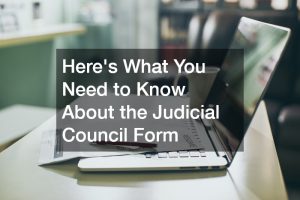- High debt levels can lead to bankruptcy, impacting families and their financial health.
- Bankruptcy laws and Chapter 13 can provide relief and protection for struggling families with a steady income.
- The FDCPA, CCPA, HPA, and SCRA laws protect families from unfair debt collection, discrimination, foreclosure, and military service-related debt.
- Proactive measures, including budgeting, prudent credit card use, saving for emergencies, timely payment of debts, and seeking financial advice, can help avoid debt traps.
- Staying informed about debt laws and seeking legal assistance can help manage and avoid severe debt situations.
Debt can be challenging, as many people continue to grapple with it daily. It can lead to severe financial difficulties and, in some cases, an inability to meet basic needs. For this reason, laws have been implemented to help protect families from falling into severe debt. While these laws vary from country to country, they typically aim to protect families from debt collectors, foreclosures, and bankruptcy.
Debt Among Families
It’s estimated that the average household debt in the country today is around $103,000, which includes credit cards, mortgages, car payments, and student loans. With such high levels of debt, it’s no surprise that many families cannot keep up with their payments and may be forced to file for bankruptcy. Here are some of the most significant effects of debt on families.

1. Bankruptcy Laws
The term “bankruptcy“ often carries a negative connotation, but it’s essential to understand that it’s a legal process designed to help families manage their debt problems. When one files for bankruptcy, they can either have their debts discharged or restructured, allowing them to repay them over a longer period. Bankruptcy laws vary from country to country, but in most cases, they provide some form of debt relief and protection against debt collectors. The most common option among families is Chapter 13 bankruptcy.
The wage earner’s plan (Chapter 13) allows individuals to restructure their debts and create a payment plan that suits their income level. This option is best for families struggling with debt but still having a steady source of income. It allows them to repay their debts over time. However, hiring an experienced Chapter 13 lawyer is essential. The lawyer can help you navigate the legal process and protect your rights.
2. Fair Debt Collection Practices Act (FDCPA)
The Fair Debt Collection Practices Act (FDCPA) is a law that helps with debt collection in the United States. It provides guidelines for debt collectors on acceptable behavior and prohibits them from using abusive, deceptive, or harassing tactics when attempting to collect debt. FDCPA protects families from the unscrupulous and unfair tactics that some debt collectors use, including harassing phone calls and threatening letters.
3. Consumer Credit Protection Act (CCPA)
The Consumer Credit Protection Act (CCPA) is a law that provides limited protection to families regarding debt. It prohibits employers from firing, refusing to hire, or discriminating against employees due to wage garnishments for consumer debts. In addition to protecting employees from job loss, the CCPA regulates credit reporting and protects deceptive lending practices.
4. The Homeowners Protection Act (HPA)
The Homeowners Protection Act (HPA) is a law that was enacted to protect homeowners from the risk of losing their homes to foreclosures. It requires lenders to cancel private mortgage insurance (PMI) for homeowners who have made a significant payment on their mortgage. It also requires lenders to provide families with clear information on canceling PMI. It also requires the cancellation to be automatic when the homeowners reach a 78% loan-to-value ratio.

5. The Servicemembers Civil Relief Act (SCRA)
The Servicemembers Civil Relief Act (SCRA) protects the families of military members from debt collection actions while the members are on active duty. The law includes rate and fee protections on debts incurred before military service, protection against eviction, and protection for child custody and visitation rights.
Ways to Avoid Debt Problems
While these laws provide significant protection for families facing debt problems, it’s essential to take proactive measures to avoid getting into debt in the first place. Here are some tips to help you avoid debt problems:
- Create a budget and stick to it.
- Avoid using credit cards unless necessary.
- Save for emergency expenses.
- Pay off debts on time and in full.
- Seek help from a financial advisor if needed.
By following these tips, families can avoid falling into severe debt and protect themselves from the negative impacts of debt. It’s essential to stay informed about debt laws and seek legal assistance if facing overwhelming debt. Remember, with proper planning and responsibility, managing and avoiding debt problems is possible. So, take the necessary steps to secure your financial future and protect your family from debt. Stay informed, seek help when needed, and make wise financial decisions to avoid falling into debt traps.






